ICEF2021 Program
‹ Apology for the disruption during the live streaming of Technology Sessions 5 ›
We deeply apologize for the technical difficulties during “Technology Sessions 5: Digital Technology to achieve Efficiency and Decarbonization”.
An error occurred and a portion of the live-stream was not able to be streamed correctly.
For the on-demand stream of this session, please be assured that we have fixed the problem and the entire session has been streamed without any problems.
- All sessions and events are held during the daytime hours in Japan Standard Time and will be distributed online.
- The programs are subject to change.
- Information will be updated.
See below for details of each program.
Wednesday, October 6
Opening Session
Opening Remarks
Side Event
9:00 - 11:15
NEDO Moonshot R&D Program Symposium
“Future Prospect for Direct Air Capture and CO2 Utilization”
Direct Air Capture that directly capture CO2 in the atmosphere is drawing attention as important technology for the achievement of Carbon Neutral. In 2020, NEDO started technology development projects for DAC and utilization of CO2 in the Moonshot Research and Development Program. In this symposium, we will discuss future scenarios for the widespread adoption of DAC while delving into the opportunities and challenges of novel technologies, focusing on Moonshot projects.
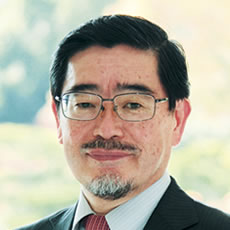
YAMAJI Kenji
Innovation for Cool Earth Forum (ICEF) Steering Committee;
President/Director-General,Research Institute of Innovative Technology for the Earth (RITE);
Professor Emeritus, The University of Tokyo

YAMADA Hiroyuki
Director General, Frontier and Moonshot Technology Department,
New Energy and Industrial Technology Development Organization (NEDO)

Gregory Nemet
Professor of Public Affairs, La Follette
School of Public Affairs,
University of Wisconsin-Madison

Graciela Chichilnisky
Co-Founder & CEO, Global Thermostat;
Professor of Economics and Mathematical Statistics, Columbia University;
Director of the Columbia Consortium for Risk Management, Columbia University

KODAMA Akio
Professor, Faculty of Mechanical Engineering, Institute of Science and Engineering, Kanazawa University

SUGIYAMA Masakazu
Professor, Research Center for
Advanced Science and Technology,
The University of Tokyo

FUJIKAWA Shigenori
Distinguished Professor, International
Institute for Carbon Neutral Energy
Research, Kyushu University;
Director, Research Center for Negative
Emissions Technologies, Kyushu
University
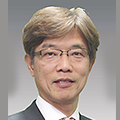
NOGUCHI Takafumi
Professor, Department of Architecture,
Graduate School of Engineering,
The University of Tokyo
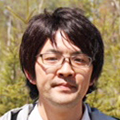
KATO Souichiro
Senior Researcher, Bioproduction Research Institute, National Institute of Advanced Industrial Science and Technology (AIST)

NORINAGA Koyo
Director, Institute of Materials Innovation (i MI), Nagoya University

FUKUSHIMA Yasuhiro
Professor, Department of Chemical Engineering, Graduate School of Engineering, Tohoku University
Keynote
14:35 - 15:05
Keynote 1
Dialogue between Dr. Fatih Birol (IEA Executive Director) and
Mr. Nobuo Tanaka (ICEF Chair)
Plenary Session
15:10 - 16:40
Policy Innovation
The Greenhouse Gas (GHG) emissions has dropped at the global level during the COVID-19, however, they continued to rebound. Therefore, various actions respectively need to be taken in order to achieve the carbon neutrality (CN) targets globally.
Depending on each country’s economic structure, current energy systems, and CO2 emission reduction target, they would pass through different pathways to achieve CN targets.
This session will discuss practical ways to achieve those targets, such as political approaches and opportunities to learn each country’s case, by understanding structure and concept of each government’s policy.

TANAKA Nobuo
Chair, Innovation for Cool Earth Forum (ICEF) Steering Committee;
Former Executive Director, International Energy Agency (IEA)

Hoesung Lee
Innovation for Cool Earth Forum (ICEF) Steering Committee;
Chair of the Intergovernmental Panel on Climate Change (IPCC);
Endowed Chair Professor, Graduate School of Energy and Environment, Korea University

Changhua Wu
Chief Executive Director, Beijing Future Innovation Center

Samantha McCulloch
Head of Carbon Capture Utilisation and Storage Unit, International Energy Agency (IEA)
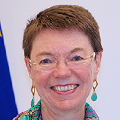
Ambassador Patricia Flor
EU Ambassador to Japan

Natalie Jones
Research Associate, Centre for the Study of Existential Risk,
University of Cambridge

KAWASAKI Rena
Chief Future Officer (CFO),
Euglena Co., Ltd.

Thetis Georgiou
Young Ambassador on the Future
of Europe,
European Youth Parliament (EYP)
Technology Session
16:50 - 17:50
Sustainable Food System for 2050
Food systems (including production, transportation, processing, packaging, storage, retail, consumption, loss and disposal) are the areas where little attention has been paid to as climate measures. However, a present estimate suggests that food systems has a potential to abate about 20% of the CO2 reduction required to achieve carbon neutrality (CN) around 2050.
In this session, the current food system situation and the future perspectives will be presented, and then it will discuss along the supply chain. Specifically, in addition to the necessary actions and the required societies in the long-term (2050), the short-term efforts (until 2030) will be also discussed by dividing them into the production-distribution stage and the consumption stage.
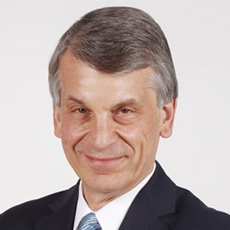
David Sandalow
Innovation for Cool Earth Forum (ICEF) Steering Committee;
Inaugural Fellow, Center on Global Energy Policy, Columbia University;
Co-Director, Energy and Environment Concentration, School of International and Public Affairs, Columbia University
Ismail Serageldin
Innovation for Cool Earth Forum (ICEF) Steering Committee;
Emeritus Librarian of Alexandria;
Founding Director of the Library of Alexandria
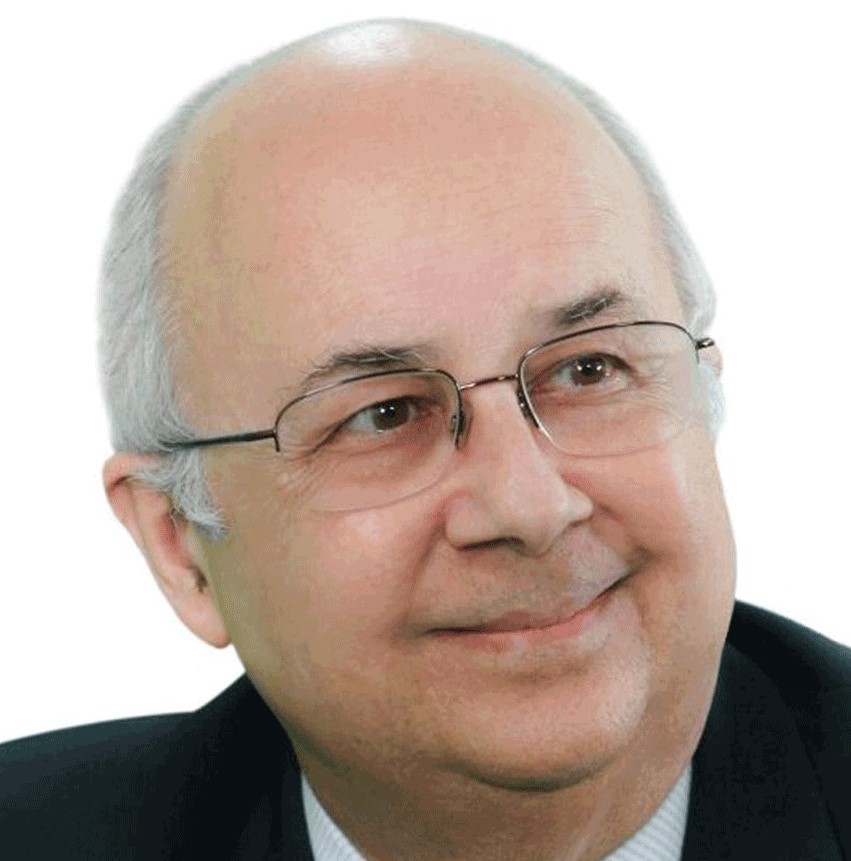

ISHII Naoko
Executive Vice President and Director,
Center for Global Commons,
the University of Tokyo

Brian Bosire
Founder and CEO,
UjuziKilimo & Hydrologistics Africa

Uma Lele
President of the International Association of Agricultural Economists (IAAE),
elected in 2021
Institute of Economic Growth,
University of Delhi, India
Thursday, October 7
Technology Session
9:00 - 10:00
Energy System Integration
This year ICEF will have two technology sessions on using digital technologies as solutions for supply-demand mismatches and digital optimization: “Energy System Integration” and “Digital Technology to achieve Efficiency and Decarbonization.” The “Energy System Integration” Session will cover solutions toward achieving carbon neutrality by around 2050 from an energy supply viewpoint. Discussions will focus on not only electricity but also other energy sources and reach beyond the energy sector to cover connection and interaction among the electric power sector and non-energy sectors, as well as optimal supply-demand balancing and energy systems to support integration. Near future and medium-term aspects will also be discussed.

YAMAJI Kenji
Innovation for Cool Earth Forum (ICEF) Steering Committee;
President/Director-General,Research Institute of Innovative Technology for the Earth (RITE);
Professor Emeritus, The University of Tokyo

NISHIMURA Kiyoshi
Guest Professor, Business Engineering, Osaka University

Ejeong Baik
PhD Candidate, Department of Energy Resources Engineering,
Stanford University, USA

Carlalberto Guglielminotti
Chief Executive Officer, NHOA

Luciano Martini
Director, Green Powered Future Mission, Mission Innovation;
Director, Transmission and Distribution Technology Department, Ricerca sul Sistema Energetico (RSE) - Italy

OTSUKI Takashi
Senior Researcher, New and Renewable
Energy Group, Electric Power Industry
& New and Renewable Energy Unit,
The Institute of Energy Economics,
Japan (IEEJ)
Technology Session
10:10 - 11:10
Nuclear Power as a Power Source for Decarbonization
In this session, from the perspective of the short-term and the mid- to long-term, we will discuss the technical development of existing light-water reactor (LWR) technologies and next-generation reactor technologies in the context of the timeframe aimed at carbon neutrality by 2050. In addition, we will also touch upon initiatives concerning the social acceptance of nuclear power technologies.
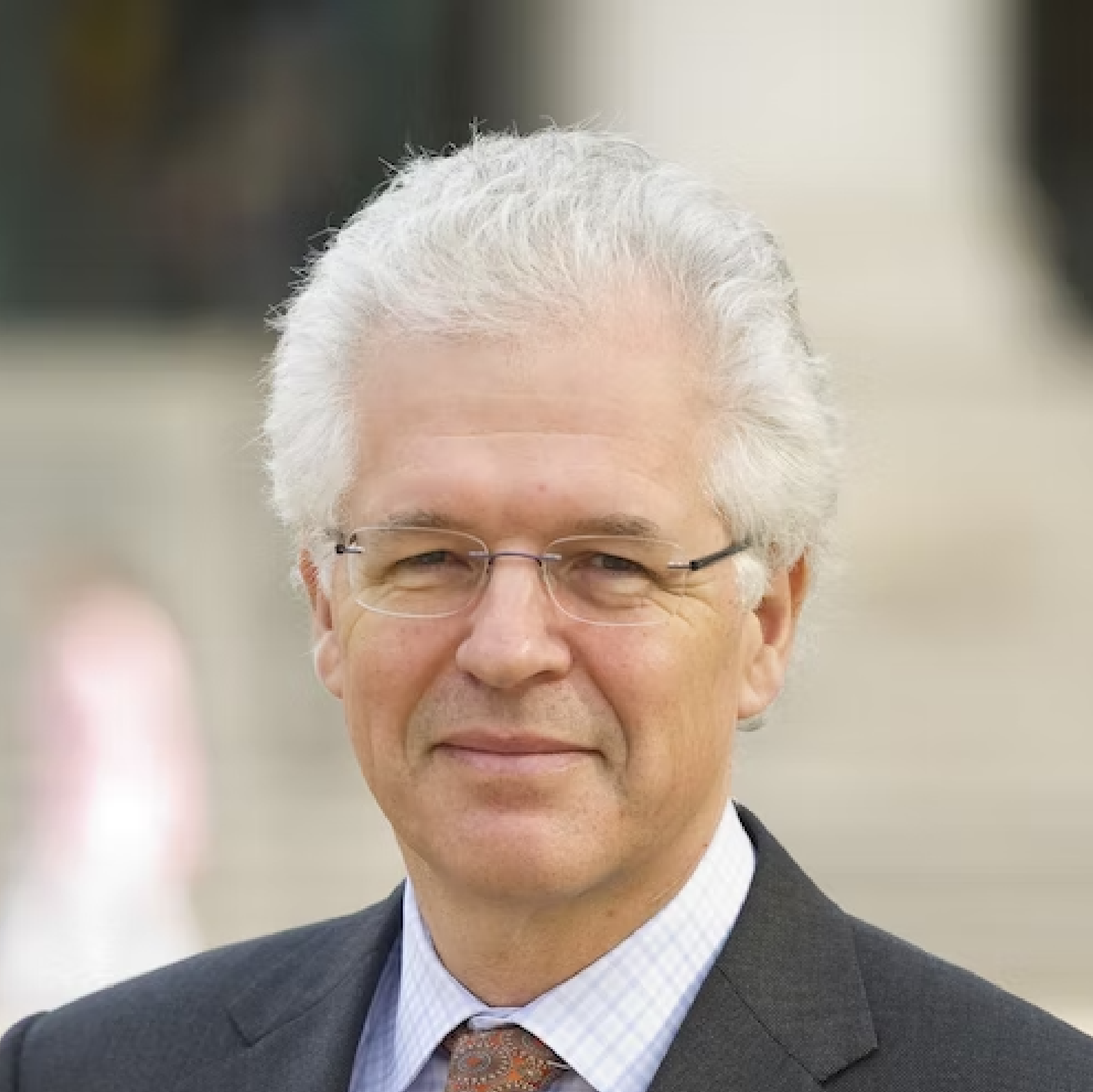
Richard K. Lester
Innovation for Cool Earth Forum (ICEF) Steering Committee;
Associate Provost, Massachusetts Institute of Technology

Eija-Riitta Korhola
Innovation for Cool Earth Forum (ICEF) Steering Committee;
Delegate of the Consultative Commission on Industrial Change;
Advisor in the EU Affairs
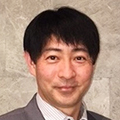
Kanzaki Yurugi
Director, Nuclear Systems Engineering Department, Nuclear Energy Systems, Mitsubishi Heavy Industries, Ltd.

Myagmarjav Odtsetseg
Researcher (Dr. Eng.), IS Process
Experiment Group, HTGR Research
and Development Center,
Japan Atomic Energy Agency

Aditi Verma
Assistant Research Scientist, Department of Nuclear Engineering and Radiological Sciences,
University of Michigan;
Visiting Scholar, Project on Managing the Atom, Belfer Center for Science and International Affairs,
Harvard Kennedy School of Government

Ashley E. Finan
Director,
National Reactor Innovation Center,
Idaho National Laboratory
Technology Session
11:20 - 12:20
Negative Emission Technologies
Aiming for the achievement of Carbon Neutral in 2050, Negative Emission Technologies (NETs) such as Direct Air Capture and Storage (DACCS) and Bioenergy CCS (known as BiCRS or BECCS) are drawing attention in various fields as methods of treating residually emitted CO2.
In this session, we will provide an overview of the current situation regarding cost, one of the major challenges regarding NETs, and discuss the social systems necessary to promote the introduction and diffusion of these technologies, as well as challenges in the social implementation phase. Toward carbon neutrality, we will discuss the initiatives that are required in the short-term and mid- to long-term.

David Sandalow
Innovation for Cool Earth Forum (ICEF) Steering Committee;
Inaugural Fellow, Center on Global Energy Policy, Columbia University;
Co-Director, Energy and Environment Concentration, School of International and Public Affairs, Columbia University
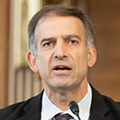
S. Julio Friedmann
Senior Research Scholar, Center for Global Energy Policy,
Columbia University

AKIMOTO Keigo
Group Leader of Systems Analysis Group, Chief Researcher, Research Institute of Innovative Technology for the Earth (RITE)

Shuchi Talati
Chief of Staff, Office of Fossil Energy &
Carbon Management,
US Department of Energy (DOE)

SUGIYAMA Masahiro
Associate Professor at the Institute for
Future Initiatives (IFI),
the University of Tokyo (UTokyo)
Keynote
13:20 - 13:25
Keynote 2
Video Message from Mr. Michael Bloomberg
(Interview by Mr. Nobuo Tanaka (ICEF Chair))
Plenary Session
13:30 - 14:45
Behavioral Innovation for a Decarbonized Society
Individual behavioral change of all stakeholders in society plays essential roles to achieve carbon neutrality (CN). As an example, households consume 29% of global energy (21% of resultant CO2 emissions), and one study implies that individual behavioral change across various sectors such as agriculture, food, energy, and transport could abate 20-37% of the projected total GHG emissions from 2020 to 2050.
To make individuals change, we need to design how behavioral innovations could be triggered towards the reduction of GHG emissions since human behavior is not always backed with rationality. Behavioral innovation can be defined as causing a fundamental change in human behavior by effectively triggering right actions in order to create an impact that matters. In this point, public awareness is only a precondition to lead to behavioral change and social innovations towards a decarbonized society. However, the key question here is how to keep the public awareness at its present level (against other urgent problems such as COVID-19, shortage of housing, etc.) and how to "use" this level of awareness towards emission reductions.
This session will discuss the short-term (2030) and the long-term (2050) changes/pathways for individual behavioral innovation, and also what kind of public awareness is expected to accelerate such innovation.

KURODA Reiko
Innovation for Cool Earth Forum (ICEF) Steering Committee;
Designated Professor, Frontier Research Institute, Chubu University;
Professor Emeritus, The University of Tokyo
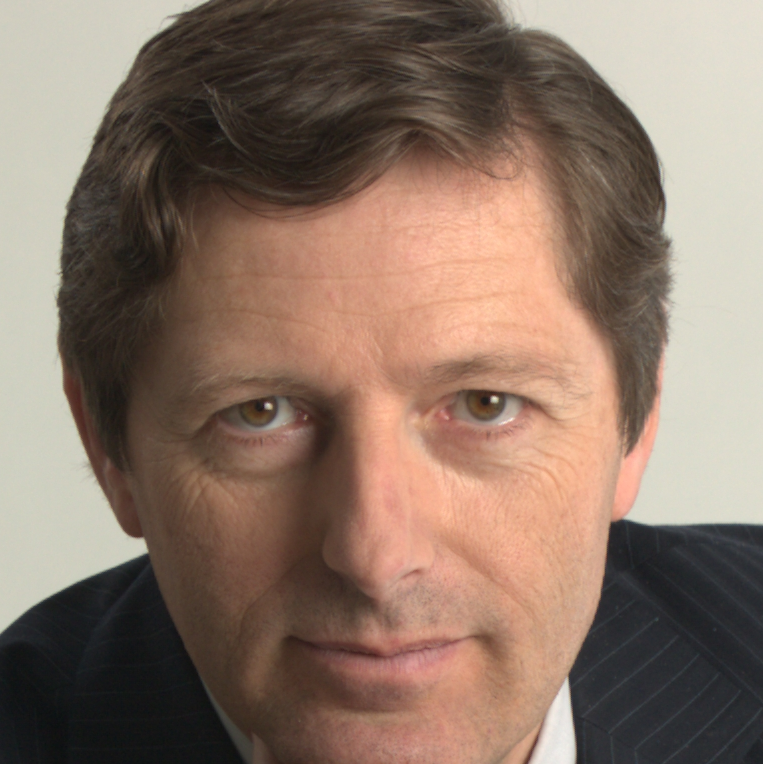
Georg Erdmann
Innovation for Cool Earth Forum (ICEF) Steering Committee;
Retired Professor for Energy Systems,Berlin University of Technology;
President of the Board, KSB Energie AG, Berlin

Rob Harrison
Director,
Ethical Consumer Research Association

Matt O'Keefe
Head of Opower at Oracle Utilities

Rakhim Rakhimov
Behavioral Research Associate, Center for Behavior & the Environment, Rare

Elisabetta Cornago
Research fellow,
Centre for European Reform
Technology Session
15:00 - 16:00
Digital Technology to achieve Efficiency and Decarbonization
This year ICEF will have two technology sessions on using digital technologies as solutions for supply-demand mismatches and digital optimization. The “Digital Technology to achieve Efficiency and Decarbonization” Session will forecast the changes of lifestyle, values of living, and the new business through societal digitalization and how such changes may impact the energy demand. We will then discuss the development of power saving technology to achieve both digital business expansion and the carbon neutrality.

Natalie Samovich
MCPV co-founder, Resilient Group;
Head of Research and Innovation, ENERCOUTIM

Kari Dahlgren
Research Fellow,
Emerging Technologies Research Lab,
Monash University

SUGIBAYASHI Tadahiko
Co-Founder/CEO,
Nanobridge Semiconductor, Inc.

Antonello Monti
Professor, E.ON Energy Research Center, RWTHAACHEN University

Areti Ntaradimou
Editor, Smart Energy International
Plenary Session
16:15 - 17:30
Private Sector’s Responsibility for Achieving Carbon Neutrality
Over the last two years, there has been a dramatic increase in the number of countries and regions discussing and setting carbon neutrality (CN) targets. In January 2020 34% of emissions were covered by such discussions, by July 2021 this was 70%. The private sector will play a crucial role in achieving these CN targets via low carbon technologies’ development and dissemination. Also, companies should review their business models and long-term visions to make sure they are consistent with achieving CN. Finally, companies will need to consider the demands of other stakeholders such as customers and financial institutions, and enhance their climate-related disclosures to report their strategies and activities to the market.
This session will explore how companies see this global CN shift, and how they plan to formulate and execute their business strategies. The expectations of the private sector, of governments and financial institutions will be also discussed.

Jon Moore
Innovation for Cool Earth Forum (ICEF) Steering Committee;
Chief Executive Officer, BloombergNEF

Laurence Tubiana
Innovation for Cool Earth Forum (ICEF) Steering Committee;
CEO, European Climate Foundation;
Chair of the Board of Governors, French Development Agency (AFD);
Professor, Sciences Po Paris

Antonina Scheer
Researcher at the Transition Pathway Initiative, London School of Economics and Political Science (LSE) Grantham Research Institute on Climate Change and the Environment

Sarah Chandler
Senior Director, Environment and Supply Chain Innovation/Operations, Apple
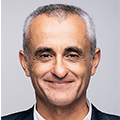
Xavier Denoly
Sustainable Development Senior Vice President, Schneider Electric

Julien Perez
Vice President, Strategy & Policy,
Oil and Gas Climate Initiative (OGCI)
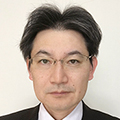
TAKAHASHI Kenji
General Manager, Decarbonization Promotion Section, Corporate Strategy Department, JERA Co., Inc.
Side Event
9:00 - 10:00
Roadmap Event
“Carbon Mineralization”
The ICEF Carbon Mineralization Roadmap explores the potential for carbon mineralization to contribute to net zero emissions by mid-century. It will be released in draft form on October 7 and in final at COP26.
The roadmap provides a primer on the science of carbon mineralization; explores strategies for using carbon mineralization to remove carbon dioxide (CO2) from the atmosphere; sets forth priority research and development needs; examines policies for promoting the use of carbon mineralization to contribute to climate mitigation; compares carbon mineralization to direct air capture; and offers findings and recommendations.
At this session, co-authors of the roadmap will present its draft findings and take questions from the audience.

David Sandalow
Innovation for Cool Earth Forum (ICEF) Steering Committee;
Inaugural Fellow, Center on Global Energy Policy, Columbia University;
Co-Director, Energy and Environment Concentration, School of International and Public Affairs, Columbia University

S. Julio Friedmann
Senior Research Scholar, Center for Global Energy Policy,
Columbia University
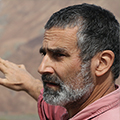
Peter Kelemen
Professor of Earth and
Environmental Sciences,
Columbia University

Briana Schmidt
Staff Scientist,
Lawrence Livermore National Laboratory

Roger Aines
Chief Scientist,
Energy Program,
Lawrence Livermore National Laboratory
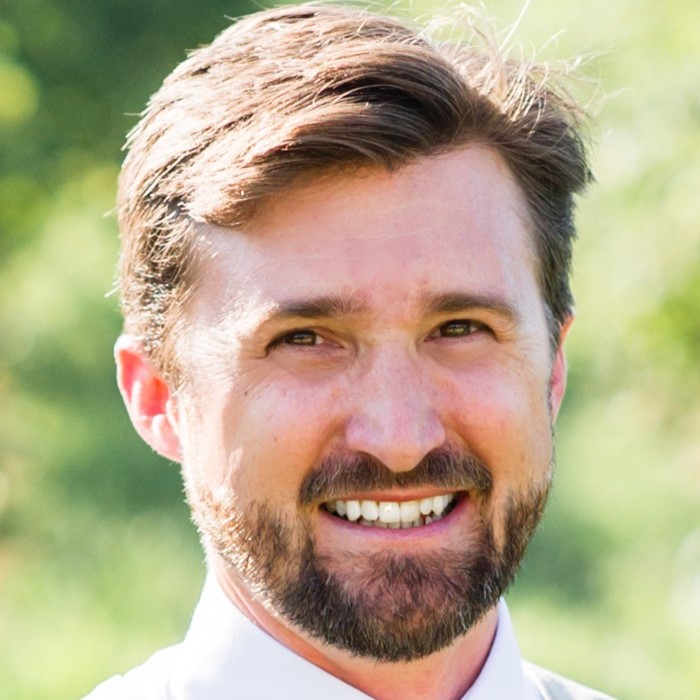
Colin McCormick
Adjunct Associate Professor,
the Walsh School of Foreign Service,
Georgetown University

Ian M. Power
Assistant Professor,
Department of Environmental
and Life Sciences,
Trent University
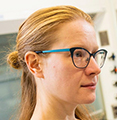
Sasha Wilson
Associate Professor,
Department of Earth
and Atmospheric Sciences,
University of Alberta
Side Event
15:00 - 17:00
The co-hosted event by UNIDO
“Achieving global carbon neutrality
- collaboration with developing and emerging nations”
In the recent years, several countries including EU, Japan and US have initiated concrete measures to achieve “carbon neutrality by 2050.” Being the leader among the emerging economies, the Chinese Government also announced in 2020 to attain carbon neutrality by 2060. 60% of the global CO2 emission is nowadays derived from “Non-Annex I Parties” under the United Nations Framework Convention on Climate Change, which are mainly developing countries, and urgent measures are required to achieve carbon neutrality on the global scale. On the other hand, energy access is not secured yet for the majority of citizens in developing countries and the issue to ensure their energy access (“energy sufficiency”) also needs to be addressed urgently to achieve the Sustainable Development Goals (SDGs).
Against this background, this session aims to provide a platform to share challenges and opportunities and facilitate constructive discussions towards resolving this global issue of achieving global carbon neutrality in collaboration with developing and emerging nations by inviting stakeholders from the government, industry and academia.
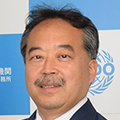
YASUNAGA Yuko
Head, Investment and Technology Promotion Office, Tokyo, United Nations Industrial Development Organization (UNIDO)
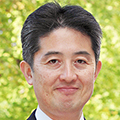
OKI Taikan
Former Senior Vice-Rector, United Nations University;
Professor at Graduate School of Engineering, The University of Tokyo
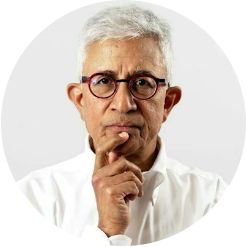
Valli Moosa
Head of the South African Presidential Climate Commission;
Former President of the International Union for Conservation of Nature and Natural Resources (IUCN)
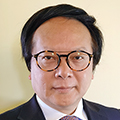
Lin Xu
Chairman of the China-U.S. Green Fund

Wolfgang Niedermark
Member of the Executive Board, Federation of German Industries (BDI)
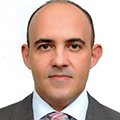
Hicham Bouzekri
Director of Research & Development and Industrial Integration, Moroccan Agency for Sustainable Energy (MASEN)
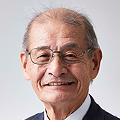
YOSHINO Akira
Director, Global Zero Emission Research Center (GZR), National Institute of Advanced Industrial Science and Technology (AIST)

Clara Landeiro
Asia-Pacific Manager, Climate Technology Centre & Network (CTCN)
Closing Session
17:35 - 18:05
